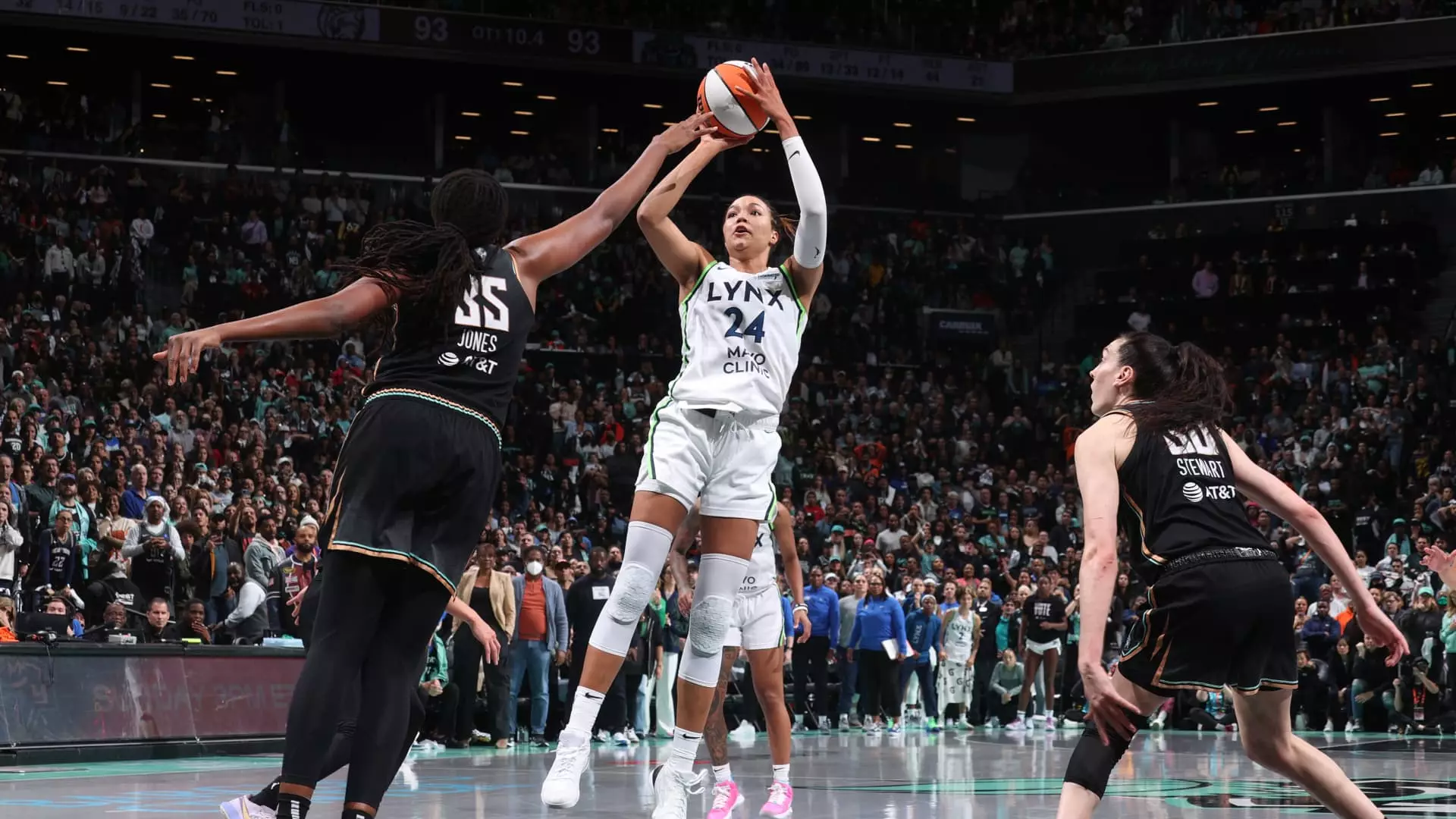The Women’s National Basketball Association (WNBA) is on the cusp of historic changes as it prepares for the 2025 season. With an expansion of the regular season to 44 games from the previous 40, along with an increase in the Finals series from five to seven games, the league is solidifying its position as a cornerstone of women’s sports. These changes, announced by WNBA Commissioner Cathy Engelbert, are a response to the burgeoning popularity of women’s basketball and a strategic move to enhance fan engagement.
The decision to extend the regular season and playoff structure represents a significant shift in how the WNBA intends to captivate its audience. Engelbert articulated that this level of growth in the league warrants providing fans with wider access to their favorite athletes, emphasizing the importance of showcasing the talent pool in the league. The adoption of a 2-2-1-1-1 home game format for the Finals rounds is particularly intriguing, as it creates a competitive edge while still offering fans a chance to witness the highest caliber of play.
This strategic development is not just beneficial to the league; it serves as a reward for ardent fans who have supported the WNBA through thick and thin. By enhancing the spectacle of the playoffs, the league increases the allure of attending games, which may further boost attendance and viewership figures—two critical metrics for any sports organization.
Adding the Golden State Valkyries as the WNBA’s 13th franchise signals much more than just a numerical increase; it highlights the potential for the league’s continued growth in various markets across North America. With the proposed teams in Toronto and Portland slated to debut in 2026, the league is signaling to the world that it is committed to expanding the reach of women’s basketball.
While narratives abound around franchise expansion and financial growth, these strategic movements also pose new responsibilities for the WNBA. The addition of new teams requires teams to cultivate fan bases and establish a legacy, and if the WNBA aims to sustain this momentum, they must ensure that the quality of play remains a priority alongside successful market penetration.
The 2024 season has underscored the fact that women’s basketball is evolving from a niche sport into a mainstay of American athletics. The excitement surrounding notable rookies like Caitlin Clark and Angel Reese, paired with established stars such as Breanna Stewart and A’ja Wilson, who have both claimed MVP titles, signifies the depth of talented players ready to redefine the sport. The fan engagement has noticeably surged, culminating in an impressive media rights deal valued at $2.2 billion over 11 seasons. Such financial endorsements are a clear indicator of the media landscape’s changing perception toward women’s sports.
However, the attention garnered by the league has also come with its challenges. Reports of racism and online harassment experienced by players are alarming and indicative of a broader societal issue that requires urgent remedy. While Engelbert has publicly condemned hate and racism, her initial reticence to address these issues has raised eyebrows. It is crucial for league executives to ensure a safe environment for all athletes, reinforcing the importance of equity within the sport.
As the WNBA gears up for its transformative 2025 season, it finds itself at a crossroads of immense opportunity and significant responsibility. The league must continue to prioritize player welfare and fan engagement amidst the wave of enthusiasm and increased scrutiny.
Fan excitement, celebrity players, and a broader acceptance of women’s professional sports are paving the way for the WNBA to not only thrive but to lead the charge in the evolution of women’s athletics. As the Finals unfold between the Minnesota Lynx and the New York Liberty, the league is set for an electrifying future that will potentially shape the women’s sports landscape for years to come. The challenge will lie in maintaining this momentum, addressing societal issues, and ensuring that the game remains fair, safe, and celebratory for everyone involved.

